Insulation Size
Market Size Snapshot
| Year | Value |
|---|---|
| 2024 | USD 28.36 Billion |
| 2035 | USD 51.05 Billion |
| CAGR (2025-2035) | 5.49 % |
Note – Market size depicts the revenue generated over the financial year
The global insulation market is poised for significant growth, with a current market size of USD 28.36 billion in 2024, projected to reach USD 51.05 billion by 2035. This growth trajectory reflects a robust compound annual growth rate (CAGR) of 5.49% from 2025 to 2035. The increasing demand for energy-efficient building solutions, driven by stringent government regulations and rising awareness of environmental sustainability, is a primary factor propelling this market forward. Additionally, advancements in insulation materials, such as the development of eco-friendly and high-performance products, are further enhancing market dynamics.
Key players in the insulation sector, including Owens Corning, Saint-Gobain, and Rockwool International, are actively engaging in strategic initiatives to capitalize on this growth. These companies are investing in research and development to innovate new insulation technologies and are forming partnerships to expand their market reach. For instance, recent product launches focusing on sustainable insulation solutions have positioned these companies favorably in a competitive landscape, aligning with the growing consumer preference for environmentally responsible products. As the market evolves, these trends will likely continue to shape the insulation industry, driving both growth and innovation.
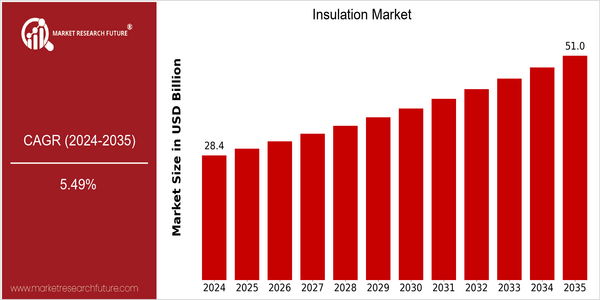
Regional Market Size
Regional Deep Dive
The Insulation Market is experiencing significant growth across various regions, driven by increasing energy efficiency regulations, rising construction activities, and a growing awareness of sustainable building practices. Each region exhibits unique characteristics influenced by local regulations, economic conditions, and cultural factors. For instance, North America is focusing on energy-efficient solutions, while Europe emphasizes stringent environmental standards. The Asia-Pacific region is witnessing rapid urbanization, leading to heightened demand for insulation materials. Overall, the market dynamics are shaped by technological advancements and a shift towards eco-friendly materials, presenting substantial growth opportunities.
Europe
- The European Union's Green Deal aims to make Europe climate-neutral by 2050, which includes significant investments in energy-efficient building retrofits, thereby boosting the insulation market.
- Regulatory changes in countries like Germany and France are mandating higher insulation standards in new constructions, leading to increased adoption of high-performance insulation materials.
Asia Pacific
- Rapid urbanization in countries like India and China is driving the demand for insulation in residential and commercial buildings, with a focus on energy efficiency and sustainability.
- Government initiatives, such as the Smart Cities Mission in India, are promoting the use of advanced insulation materials to enhance energy efficiency in urban developments.
Latin America
- Brazil's National Policy on Climate Change is encouraging the use of energy-efficient materials in construction, which is positively impacting the insulation market.
- Local manufacturers are increasingly focusing on producing eco-friendly insulation materials to meet the rising demand for sustainable building solutions in the region.
North America
- The U.S. Department of Energy has introduced new energy efficiency standards that require higher insulation performance in residential and commercial buildings, driving demand for advanced insulation materials.
- Companies like Owens Corning and Johns Manville are innovating with sustainable insulation products, such as those made from recycled materials, aligning with the growing trend towards green building practices.
Middle East And Africa
- The UAE's Vision 2021 emphasizes sustainable development, leading to increased investments in energy-efficient building materials, including insulation.
- The construction boom in countries like Saudi Arabia is creating a surge in demand for insulation products, particularly in large-scale projects like NEOM, which aims to incorporate cutting-edge sustainable technologies.
Did You Know?
“Approximately 30% of energy used in buildings is lost due to inadequate insulation, highlighting the critical role insulation plays in energy conservation.” — U.S. Department of Energy
Segmental Market Size
The insulation market is currently experiencing stable growth, driven by increasing energy efficiency demands and stringent regulatory policies aimed at reducing carbon footprints. Key factors propelling this segment include the rising consumer awareness of energy conservation and the implementation of building codes that mandate higher insulation standards. Additionally, technological advancements in insulation materials, such as the development of aerogels and spray foam, are enhancing performance and driving adoption across various sectors.
Currently, the market is in a mature adoption stage, with notable examples including companies like Owens Corning and Johns Manville, which are leading in innovative insulation solutions. Primary applications span residential, commercial, and industrial sectors, with specific use cases in energy-efficient buildings and retrofitting projects. Trends such as sustainability initiatives and government mandates for green building practices are accelerating growth, while the ongoing shift towards smart building technologies is shaping the future of insulation. Relevant methodologies include life cycle assessment (LCA) and building information modeling (BIM), which are increasingly utilized to optimize insulation performance and sustainability.
Future Outlook
The Insulation Market is poised for significant growth from 2024 to 2035, with a projected market value increase from $28.36 billion to $51.05 billion, reflecting a robust compound annual growth rate (CAGR) of 5.49%. This growth trajectory is underpinned by a rising demand for energy-efficient building solutions, driven by stringent government regulations aimed at reducing carbon emissions and enhancing energy conservation. As countries worldwide commit to sustainability goals, the adoption of advanced insulation materials, such as aerogels and phase change materials, is expected to gain momentum, further propelling market expansion.
Emerging trends, including the integration of smart technologies in insulation systems, are anticipated to reshape the market landscape. Innovations such as IoT-enabled insulation solutions will not only improve energy efficiency but also provide real-time monitoring capabilities, appealing to both residential and commercial sectors. Additionally, the increasing focus on retrofitting existing buildings to meet modern energy standards will contribute to higher penetration rates of insulation materials, with estimates suggesting that by 2035, over 60% of new constructions will incorporate advanced insulation technologies. Overall, the Insulation Market is set to thrive, driven by technological advancements, regulatory support, and a growing awareness of energy efficiency among consumers.
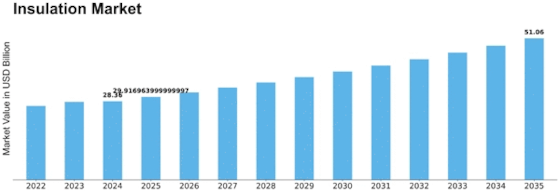


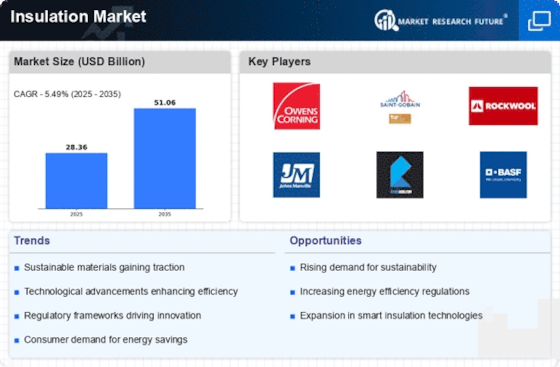

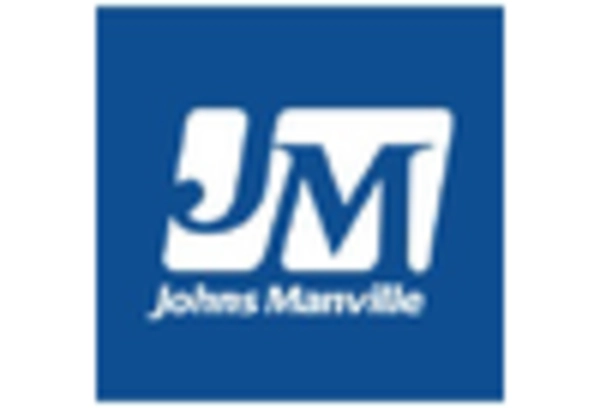
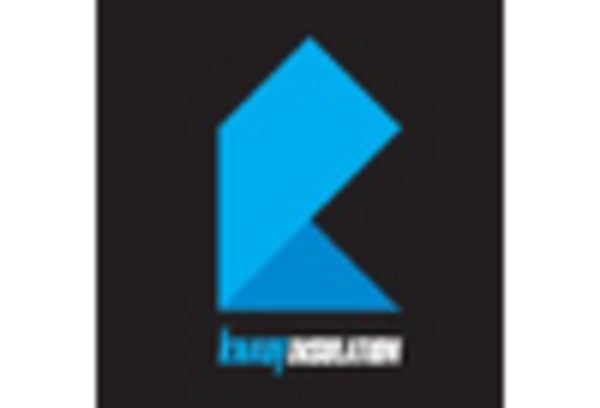
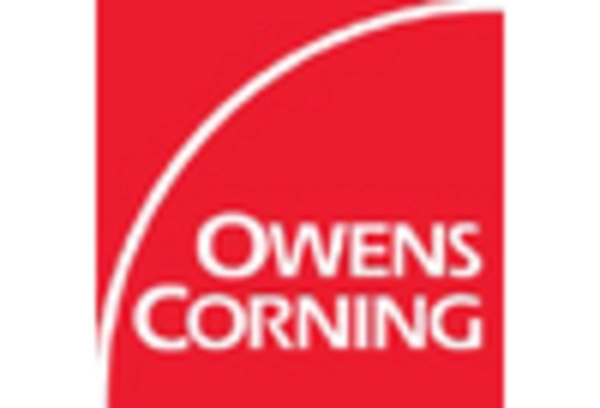
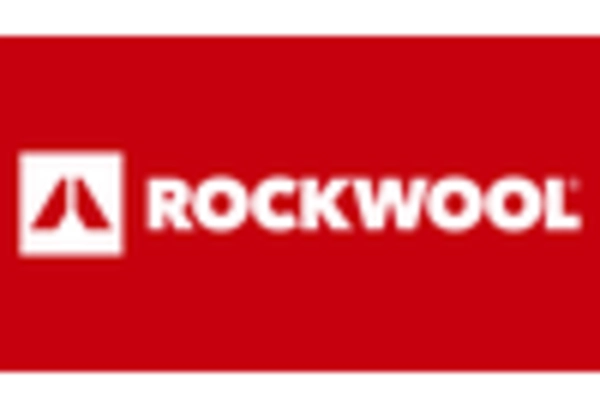











Leave a Comment